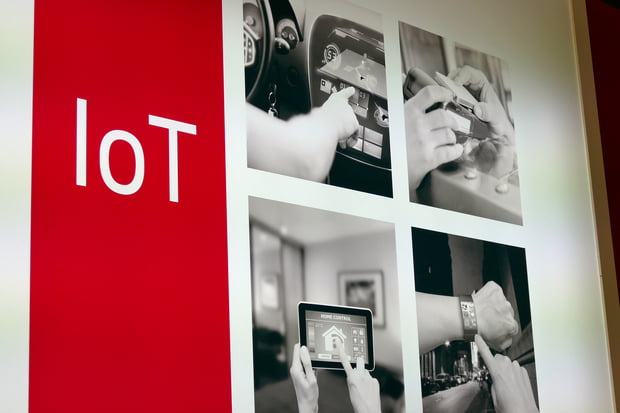

Samsung is developing a new operating system for the Internet of Things, hoping to make a bigger role for itself in the millions of smart home appliances, wearables and industrial equipment that are coming online.
The OS, which will be open source and hasn’t yet been named, will help devices to execute simple tasks quickly without human intervention. For example, the software could instruct a door lock to open and the lights to come on as a person approaches their home.
Modern tech leaders wear many hats — too many, sometimes. Here are six expert tips from seasoned IT
More details are due to be spilled next month during a technical session at theSamsung Developer Conference in San Francisco.
“Samsung will announce our new, open-source IoT real-time operating system (RTOS), which has a wide scope of features while maintaining a lightweight and efficient footprint,” the session agenda says.
A spokesman for Samsung couldn’t immediately provide further details.
A real-time OS processes data quickly, with virtually no delay. An example is Intel’s VxWorks, which has been used in the Mars Rover.
Samsung is making the operating system open source to help increase its chances of adoption and says it will allow for greater interoperability between IoT devices.
It’s goal is partly to avoid the fragmented OS landscape in mobile devices, particularly for Android, which has caused issues with device interoperability, chip compatibility and deployment of software updates.
The OS could turn out to be a pared-down version of Tizen, which is already used by Samsung in smartwatches and TVs. Samsung has a grand plan to equip homes with Internet-connected appliances like refrigerators, ovens, washing machines and bulbs, which could all potentially use the new OS.
Samsung also offers Artik boards for building smart devices. The OS could allow developers to connect to Samsung’s SAMI cloud platform for analytics, security and other services. For example, a cloud service could decide whether to switch an air conditioner on or off based on data collected from a smart meter. It could also analyze health information based on data collected over time.
The OS may also need to be compatible with IoT development platforms like Google’s Brillo or ARM’s mbed. Brillo is already supported on developer boards like Intel’s Edison.
[Source:- Computer world]





